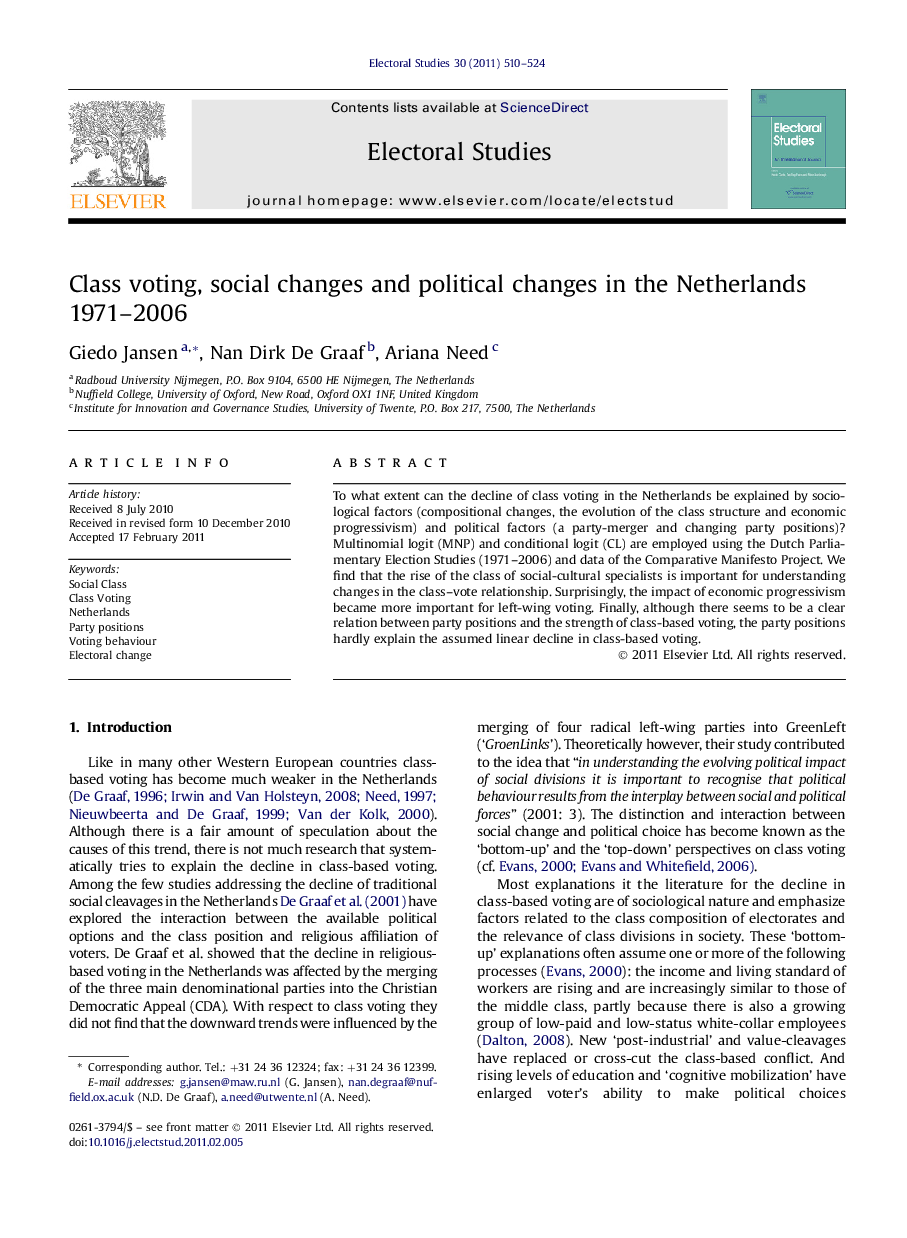| Article ID | Journal | Published Year | Pages | File Type |
|---|---|---|---|---|
| 1051934 | Electoral Studies | 2011 | 15 Pages |
To what extent can the decline of class voting in the Netherlands be explained by sociological factors (compositional changes, the evolution of the class structure and economic progressivism) and political factors (a party-merger and changing party positions)? Multinomial logit (MNP) and conditional logit (CL) are employed using the Dutch Parliamentary Election Studies (1971–2006) and data of the Comparative Manifesto Project. We find that the rise of the class of social-cultural specialists is important for understanding changes in the class–vote relationship. Surprisingly, the impact of economic progressivism became more important for left-wing voting. Finally, although there seems to be a clear relation between party positions and the strength of class-based voting, the party positions hardly explain the assumed linear decline in class-based voting.
► To what extent can the decline of class voting be explained by social and political factors? ► Data: Dutch Parliamentary Election Studies (1971–2006); Comparative Manifesto Data. ► Methods: logistic regression analyses; conditional logistic regression analyses. ► Findings: the rise of the social-cultural specialists is important for changes in the class voting. ► Party positions hardly explain the assumed linear decline in class-based voting.
